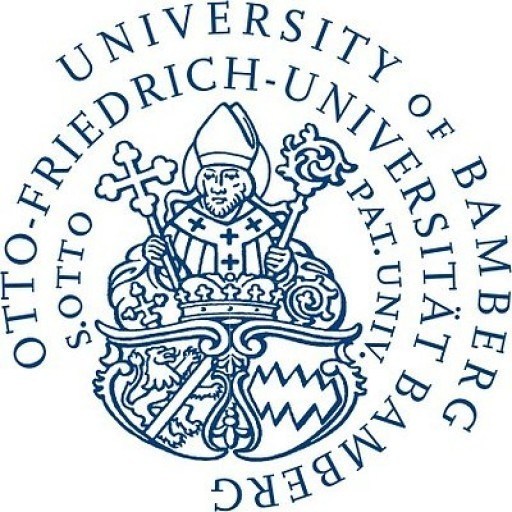Photos of university / #uni.flensburg
The Master's programme lasts two years and is offered as a cooperation between the Universities of Southern Denmark and Flensburg. It is an international programme with classes held in English. It attracts students from all over Europe and the rest of the world.
The Master's programme emphasises a comprehensive and in-depth insight into relevant European issues within the disciplines of social sciences and the humanities, such as economic and political theories, European law, European ideas and European contemporary history. Furthermore, the programme addresses regional development and innovation.
The programme comprises both compulsory and elective subjects. The compulsory courses are built around the following three main dimensions of the programme: Europe, Regions, and External Governance.
A special aspect of our programme is its emphasis on the role of regions and the regional particularities of Europe in a political, socio-economic, and cultural sense, which emphasises the possibilities for cooperation across borders. The cooperation of the two neighbouring universities embodies this approach.
The Master's programme emphasises a comprehensive and in-depth insight into relevant European issues within the disciplines of social sciences and the humanities, such as economic and political theories, European law, European ideas and European contemporary history. Furthermore, the programme addresses regional development and innovation.
The programme comprises both compulsory and elective subjects. The compulsory courses are built around the following three main dimensions of the programme: Europe, Regions, and External Governance.
A special aspect of our programme is its emphasis on the role of regions and the regional particularities of Europe in a political, socio-economic, and cultural sense, which emphasises the possibilities for cooperation across borders. The cooperation of the two neighbouring universities embodies this approach.
Educational organisation
First semester:- European Law 10 CP (five hours per week)
- Institutional and Constitutional Economics 5 CP (two hours per week)
- European Contemporary History 5 CP (three hours per week)
- European Regional Integration 5 CP (two hours per week)
- European Governance I 5 CP (two hours per week)
Second semester:
- Internal and External Relations of the EU 5 CP (two hours per week)
- Europe in the Global Economy 5 CP (two hours per week)
- European Governance II 5 CP (three hours per week)
- European Ideas 5 CP (two hours per week)
- European Regional Innovation Policy 5 CP (two hours per week)
- Methodological Skills/Statistical Methods 5 CP (two hours per week)
Third semester:
- European Political Economy 5 CP (two hours per week)
- European Border Region Development 10 CP (three hours per week)
In the third semester, elective modules must be successfully completed, for which a total of 15 CP must be obtained:
- Concepts of Europe and Politics of the EU 10 CP (four hours per week)
- European Business and Economics 10 CP (four hours per week)
- External Relations of the EU 10 CP (four hours per week)
A full-time internship of at least four weeks can also be recognised as an elective module, provided that it is course-related. Evidence that this internship has been completed has to be provided by way of a report which rates the internship as passed or not passed.
This result does not count towards the final grade.
Fourth semester:
Master's thesis (with obligatory attendance at Master's Colloquium)
The Master's thesis represents 80% and its defence 20% of the grade.
Students receive a dual degree: Master of Arts (Flensburg, Germany) and Master of Social Sciences (SDU Sonderburg, Denmark)
Study abroad unit(s)
Students are encouraged and supported in completing an internship. An internship of a minimum duration of four weeks (full-time) related to the subjects covered during the programme can be recognised as an elective course (max. 5 CP). Students have to file a report which will be graded pass or fail. The result will not form part of the final grade.Internships
Internships are not obligatory, but programme advisers and the university's career service support students in finding an appropriate internship as well as with contract matters.Forms of assessment
Written and oral forms of examination, in class examinations and home assignmentsCourse objectives
Ready for Europe!The programme is taught entirely in English and attracts a large number of international students. By living and studying together in the German-Danish border region, our students have the unique opportunity to experience both global and local realities of Europe, not only in theory but also in practice.
About the programme
The ambition of the international Master's Programme in European Studies is to cultivate a global way of thinking, i.e. Europe adapted to the pulse of time. With its focus on regional development and cooperation, the programme attracts students from all over the world. In an international atmosphere you will study European economics, politics, law, history, and culture, and you will have the chance to look at the European idea from different perspectives. A special aspect of our study programme is its emphasis on the role of regions and the regional particularities of Europe in a political, socio-economic, and cultural context. A number of external lecturers and practitioners complement the standard courses of the programme.
Language requirements
If English is not your native language, one of the following proficiency tests is required:- TOEFL with a score of min. 575 paper-based, min. 236 computer-based, 88 internet-based
- Cambridge Certificate in Advanced English level A-C
- IELTS with a score of min. 6.5
- TOEIC with a score of min. 701 or
- Common European Framework level C1
Academic requirements
Applicants for admission to the Master's programme "European Studies" must:a. have obtained an undergraduate degree (for example, a BA or in Germany a Magister or Diploma degree, or state examination "Staatsexamen") from an institution of higher education in Germany or elsewhere of at least three years of study. The degree must be in a subject or a combination of subjects relevant for the Master's programme in the field of humanities, social sciences, law or economics. Applicants must prove that they have completed this course of study in the top third of their class.
b. have acquired sufficient knowledge of the English language. He or she must provide at least one official document proving his or her knowledge of English to be at level C1 of the Common European Framework of Reference for Languages. Proof of this is provided either by having studied in an English-language programme, language study within a course of study, or an English certificate of competence (for example TOEFL).
c. have completed at least 15 CP in statistics or social-scientific methods. If no more than 5 CP are lacking, applicants are permitted to take part in the selection process. Upon admission, the admission committee will decide about the kind, extent, and time frame of the coursework that needs to be absolved.
d. Admission to the programme is subject to the subsequent condition that proof of an undergraduate degree as prescribed in subsection 1 is provided.
Enrolment fees
Initial university enrolment fee of 25 EURApprox. 100 EUR administration fee per semester, including free public transport within the city of Flensburg
Costs of living
The cost of living is generally slightly lower than in major German cities. We recommend that students budget for a minimum of between 550-700 EUR per month, including rent.Approximate monthly costs:
Rent for room in student halls of residence 200-220 EUR
or private accommodation 220-350 EUR
Food 250-300 EUR
Health insurance (required for non-EU citizens) around 80 EUR
Arrival support
Orientation for new (exchange) students begins with an intensive German language course, which will be held in the first weeks of September at the Europa-Universität Flensburg. During the orientation period in October, international students will also be given information on accreditation and other academic matters as well as on dealing with administrative matters (health insurance, residence permit, matriculation, etc.). There will be an introduction to the new university campus, the city of Flensburg and its surroundings.Services and support for international students
The International "Study Buddy" Programme aims to encourage contact between international students and students in Flensburg. Every international student will be given the opportunity to interact with a (German) "buddy". The buddy, the International Office and the university staff support international students in all issues concerning their stay in Germany and Flensburg.Accommodation
Accommodation is available through the Student Services Office or on the private market.Halls of residence: there are three halls of residence in Flensburg run by the "Studentenwerk Schleswig-Holstein". Average rent for a furnished single room in a student residence ranges from 180-230 EUR per month (including water, heating, and internet). All halls of residence are self-catering with shared kitchen and cooking facilities. To apply directly, please refer to: http://www.studentenwerk.sh/en/home/index.html
Private Accommodation: the University Students' Union (AStA) keeps a list of accommodation available for rent and offers help in finding private accommodation within Flensburg. Please refer to: http://www.uni-flensburg.de/asta/
Students receive further information with their admission letter.








